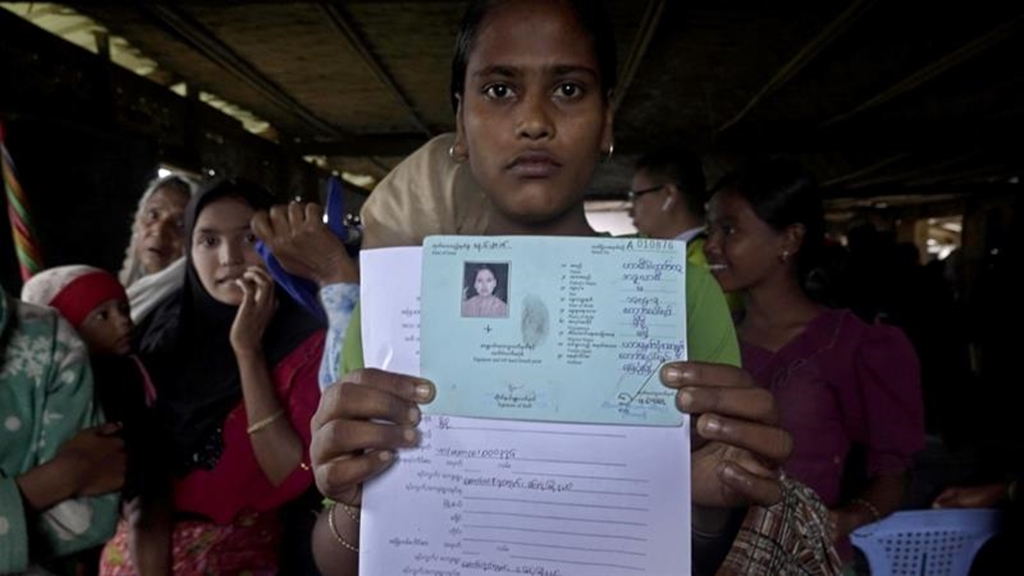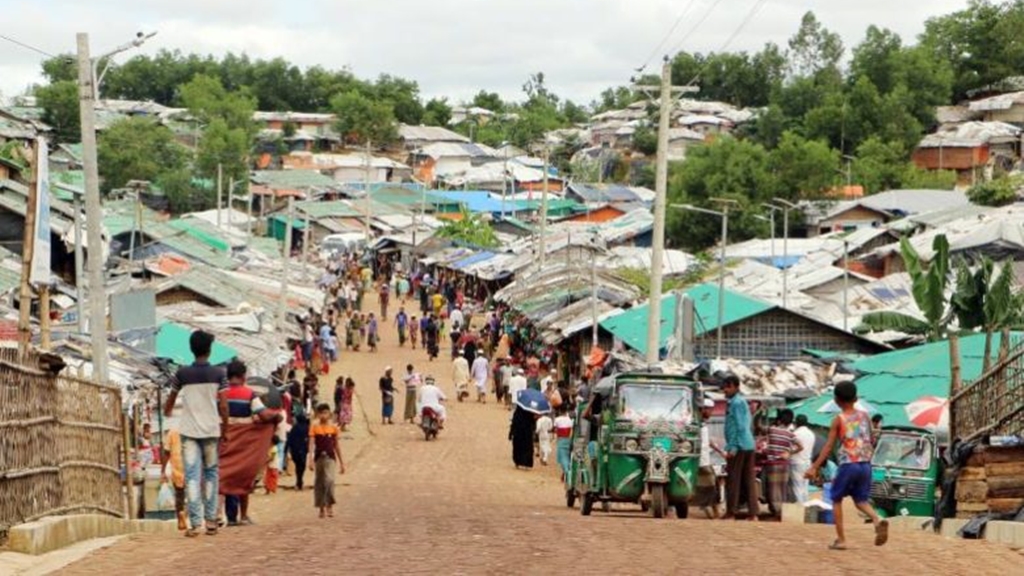
‘Genocide card’: Myanmar Rohingya verification scheme condemned
- 03/09/2019
- 0
Human rights group says ‘citizenship scrutiny’ has gradually limited Rohingya rights in Myanmar and at root of crisis.

“Despite generations of residence in Myanmar, the Rohingya are not considered to be amongst these official indigenous races and are thus effectively excluded from full citizenship.”
Myanmar’s government says NVCs are “the first step before the scrutinisation of citizenship,” in accordance with the 1982 legislation.
‘Beaten everywhere’
The Fortify Rights report also alleges Myanmar authorities have used torture and abuse in attempting to force Rohingya into accepting the verification card.
“I was beaten everywhere – my head, back, chest, and all over my body,” a 62-year-old Rohingya farmer told Fortify Rights, describing the beatings he had received. He said he was also threatened. “If you don’t accept the NVC, we will kill you,” he said he was told.
According to the report efforts to coerce Rohingya into accepting NVCs increased just before the crackdown on Rohingya civilians in 2016 and 2017.
We are not foreigners, we are indigenous
KHIN MAUNG, ROHINGYA REFUGEE AND CO-FOUNDER ROHINGYA YOUTH ASSOCIATION
“Evidence suggests a positive correlation between Myanmar authorities’ efforts to force Rohingya to accept NVCs and their efforts to destroy the Rohingya as a group,” it said.
“These findings demonstrate that the NVC process has not been a response to the crisis in Rakhine State, as the government suggests, but rather a fundamental part of the crisis.”
The United Nations Independent Fact-Finding Mission on Myanmar also found an increase in pressure on the Rohingya to accept the NVC in the months leading up to August 2017.

It noted that Border Guard Police and Myanmar Army soldiers held a “series of more targeted and aggressive meetings” with Rohingya elders in mid-August 2017, demanding residents accept NVCs.
According to the Fact-Finding Mission’s report, these meetings happened where “some of the most brutal ‘clearance operations’ subsequently took place.”
A ‘genocide card’
The verification process has become a major concern for the more than 740,000 Rohingya who were forced into Bangladesh as a result of the military crackdown.
“The first question on this form is, ‘When did you come from Bangladesh’, followed by ‘Why did you come’ and ‘Who was the chairman in your village in Bangladesh?'” a Rohingya refugee who has been in Kutupalong refugee camp since 2017, told Al Jazeera asking that their identity be protected.
“How can we answer these questions? It means they are automatically putting us in a cage. This is why people are not willing to go back.”
Other refugees that Al Jazeera spoke to in the camp in Cox’s Bazar in Bangladesh echoed that sentiment.
“The message from the Rohingya community is very clear- the NVC is not for us. We are not foreigners, we are indigenous and the NVC is a genocide card,” said Khin Maung, a Rohingya refugee in Bangladesh and cofounder of the Rohingya Youth Association.
“According to the 1982 Citizenship Law there is no mention of NVC, but the Myanmar government is trying to destroy the Rohingya community with this card.”
Until the NVC is abolished or Myanmar grants full citizenship rights to the Rohingya, there is little chance of repatriation, Quinley said.
“Many Rohingya speak about wanting to go back to their original homeland,” he said. “The Rohingya want to be granted and restored full citizenship rights in their country, and this is one of the baseline things that needs to happen for [repatriation] to occur.”






